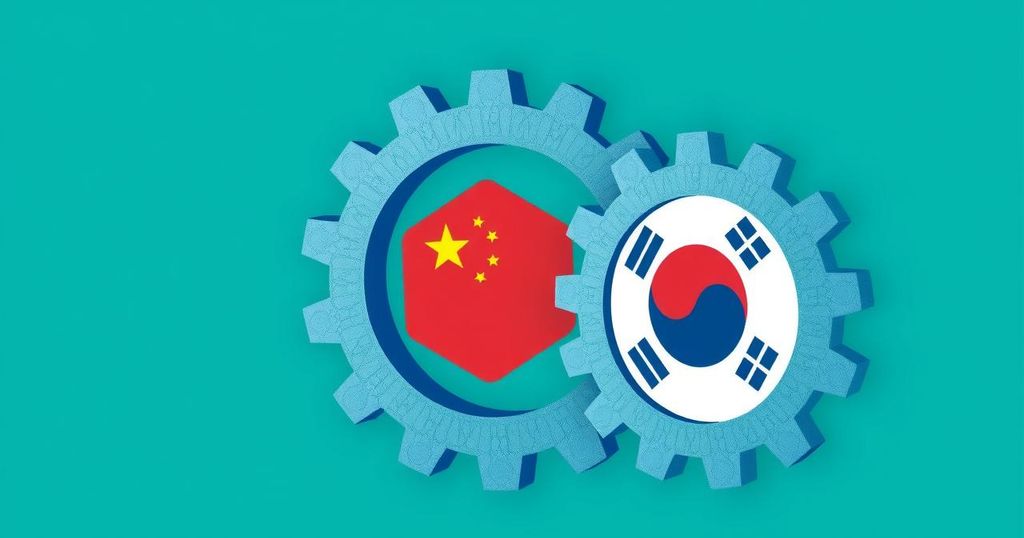China, Japan, and South Korea Unite Against U.S. Tariffs
China, Japan, and South Korea will jointly respond to U.S. tariffs. After their first economic dialogue in five years, they aim to improve regional trade and supply chain cooperation. Discussions included high-level free trade agreement negotiations. This collaboration is significant amid tensions from potential additional U.S. tariffs.
China, Japan, and South Korea have agreed to a collaborative approach in responding to United States tariffs, as reported by a social media outlet connected to Chinese state media, CCTV. This announcement follows their first economic dialogue in five years, which took place over the weekend, aimed at enhancing regional trade amid growing tensions due to U.S. tariffs imposed by President Donald Trump.
The nations are working on importing semiconductor raw materials from China, while China seeks to acquire chip products from both Japan and South Korea. The social media account, Yuyuan Tantian, indicated that the three countries are committed to strengthening their cooperation in supply chains and increasing dialogue surrounding export controls.
During the recent meeting, the trade ministers from China, Japan, and South Korea agreed to collaborate closely on high-level negotiations regarding a free trade agreement that would enhance regional and global trade relations. This meeting was significant as it occurred just prior to President Trump’s scheduled announcement regarding additional tariffs, which he referred to as “liberation day.”
Although Beijing, Seoul, and Tokyo are crucial trading partners of the U.S., they have maintained a complex relationship among themselves, plagued by conflicts over territorial issues and Japan’s handling of wastewater from the Fukushima nuclear facility.
In summary, China, Japan, and South Korea have unified in response to U.S. tariffs, reflecting a strategic collaboration aimed at enhancing their economic ties. The countries are committed to improving supply chain cooperation and engaging in discussions to bolster trade agreements. Their cooperation comes at a critical time as the U.S. contemplates further trade restrictions under President Trump’s administration. Managing their complex relationships remains vital as they work together towards common economic goals.
Original Source: www.usnews.com








Post Comment